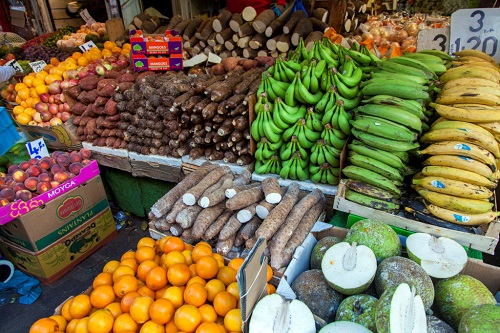World Bank warns of prolonged high food prices through 2024 amid global inflation surge
Despite forecasts of further price decreases in 2024 and 2025, potential risks loom large, including energy cost escalations, adverse weather patterns, trade restrictions, and geopolitical uncertainties.
- Advertisement -
The World Bank’s latest Food Security Update report has issued a stark warning, indicating that elevated food prices are poised to persist throughout 2024. Highlighting a troubling trend of heightened inflation across low, middle, and high-income nations in 2023, the Washington-based institution reveals concerning statistics.
In 2023, inflation rates exceeding 5% were observed in 63.2% of low-income countries, marking a 1.3% uptick from the previous assessment. Similarly, 73.9% of lower-middle-income countries and 48% of upper-middle-income nations grappled with inflation levels surpassing 5%.
- Advertisement -
Notably, even in high-income countries, food inflation remained stubbornly high, affecting 44.4% of nations, albeit showing a slight decline of 1.9% from previous figures.
- Advertisement -
Further exacerbating the situation, the International Food Policy Research Institute (IFPRI) attributes a substantial 40% decline in trade volumes in the Suez Canal to recent attacks by Houthi rebels in the Red Sea, intensifying concerns over global food security.
- Advertisement -
The World Bank’s Global Economics Prospects 2024 report underscores the urgent need to address food insecurity amidst a complex web of challenges. While 2023 witnessed a 9% decline in food prices owing to ample supplies of major crops, the report cautions against complacency, particularly noting a significant 27% decline in rice prices.
“In 2023, food prices, a significant component of the agricultural price index, declined by 9% because supplies of major crops were ample, except for rice, which declined by 27%. Food prices are expected to decline further in 2024 and 2025, although potential risks such as energy cost increases, adverse weather events, trade restrictions, and geopolitical uncertainty could affect them”, it stated.
Despite forecasts of further price decreases in 2024 and 2025, potential risks loom large, including energy cost escalations, adverse weather patterns, trade restrictions, and geopolitical uncertainties.
Source:norvanreports
- Advertisement -


